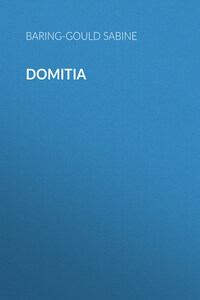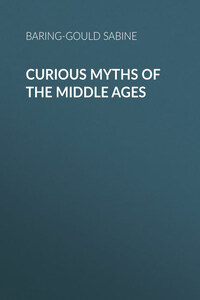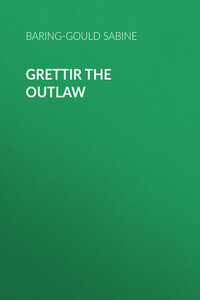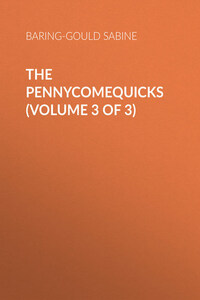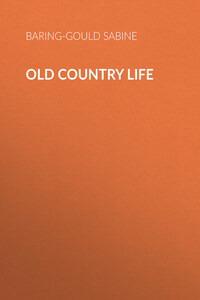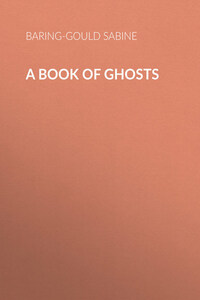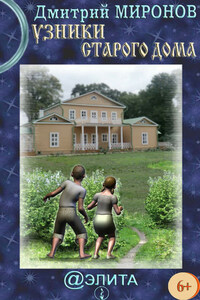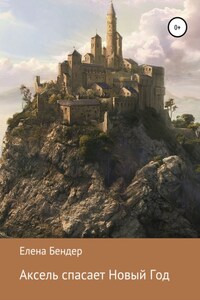CHAPTER I.
THE PORT OF CENCHRÆA
Flashes as of lightning shot from each side of a galley as she was being rowed into port. She was a bireme, that is to say, had two tiers of oars; and as simultaneously the double sets were lifted, held for a moment suspended, wet with brine, feathered, and again dipped, every single blade gleamed, reflecting the declining western sun, and together formed a flash from each side of the vessel of a sheaf of rays.
The bireme was approaching the entrance to the harbor of Cenchræa.
The one white sail was filled with what little wind breathed, and it shone against a sapphire sea like a moon.
Now, at a signal the oars ceased to plunge. The sail was furled, and the galley was carried into the harbor between the temple that stood on the northern horn of the mole, and the great brazen statue of Poseidon that occupied a rock in the midst of the entrance, driven forward by the impulse already given her by the muscles of the rowers and the east wind in the sail.
This Cenchræan harbor into which she swept was one of the busiest in the world. Through it as through a tidal sluice rushed the current of trade from the East to the West, and from the Occident to the Orient. It was planted on a bay of the Saronic Gulf, and on the Isthmus of Corinth, at the foot of that lovely range of mountains thrown up by the hand of God to wall off the Peloponnesus as the shrine of intellectual culture and the sanctuary of Liberty.
And a furrow – like an artificial dyke – ran between this range and Hellas proper, a furrow nearly wholly invaded by the sea, but still leaving a strip of land, the Corinthian isthmus, to form a barrier between the Eastern and the Western worlds.
On the platform at the head of a flight of marble steps before a temple of Poseidon, in her open litter, lounged a lady, with the bloom of youth gone from her face, but artificially restored.
She was handsome, with finely moulded features and a delicate white hand, the fingers studded with rings, and a beautiful arm which was exposed whenever any one drew near whose admiration was worth the acquisition. Its charm was enhanced by armlets of gold adorned with cameos.
Her arched brows, dark in color, possibly owed their perfection of turn and their depth of color to dye and the skill of the artist who decorated her every day, but not so the violet-blue of her large eyes, although these also were enhanced in effect by the tinting of the lashes, and a touch of paint applied to their roots.
The lady, whose name was Longa Duilia, was attended by female slaves, who stood behind the litter, and by a freedman, Plancus, who was at her side with a set smile on his waxen face, and who bowed towards the lady every moment to hear her remarks, uttered in a languid tone, and without her troubling to turn her head to address him.
“He will soon be here,” said the lady; “the bireme is in the port. I can see the ruffle before her bows as she cuts the water.”
“Like the wave in my lady’s hair,” sighed Plancus.
“Abominable!” exclaimed Duilia, “when the ripple in my hair is natural and abiding, and that in the water is made and disappears.”
“Because, Mistress, the wavelets look up, see, and fall back in despair.”
“That is better,” said the lady.
“And the swelling sail, like your divine bosom, has fallen, as when – ”
“Ugh! I should hope the texture of my skin was not like coarse sail-cloth; get behind me, Plancus. Here, Lucilla, how am I looking? I would have my lord see me to the best advantage.”
“Madam,” said the female slave, advancing, “the envious sun is about to hide his head in the west. He cannot endure, after having feasted on your beauty, to surrender it to a mortal.”
“Is not one eyebrow a trifle higher than the other?” asked Duilia, looking at herself in a hand mirror of polished metal.
“It is indeed so, lady, but has not the Paphian Goddess in the statue of Phidias the same characteristic? Defect it is not, but a token of divinity.”
“Ah,” said Duilia, “it is hereditary. The Julian race descends from Venus Genetrix, and I have the blood of the immortal ancestress in me.”
“Much diluted,” muttered Plancus into the breast of his tunic; he was out of humor at the failure of his little simile of the sail.
“By the way,” said the lady; “the stay in this place Cenchræa is positively intolerable. No society, only a set of merchants – rich and all that sort of thing – but nobodies. The villa we occupy is undignified and uncomfortable. The noise of the port, the caterwauling of sailors, and the smell of pitch are most distasteful to me. My lord will hardly tarry here?”
“My lord,” said the freedman, pushing forward, “he who subdued the Parthians, and chained the Armenians, to whom all Syria bowed, arrives to cast himself at your ladyship’s feet, and be led by you as a captive in your triumphal entry into the capital of the world.”
“You think so, Plancus.” She shook her head, “He is an obstinate man – pig-headed – I – I mean resolute in his own line.”
“Madam, I know you to be irresistible.”
